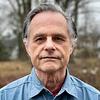Take a photo of a barcode or cover
reflective
medium-paced
Plot or Character Driven:
Character
Strong character development:
Yes
Loveable characters:
Yes
Diverse cast of characters:
No
Flaws of characters a main focus:
No
challenging
dark
emotional
hopeful
reflective
medium-paced
emotional
informative
sad
medium-paced
Plot or Character Driven:
Plot
Strong character development:
Yes
Loveable characters:
Yes
Diverse cast of characters:
No
Flaws of characters a main focus:
Yes
dark
informative
reflective
sad
medium-paced
Plot or Character Driven:
Plot
Strong character development:
No
Loveable characters:
Yes
Diverse cast of characters:
No
Flaws of characters a main focus:
Yes
I read this for Philosophy class and I think it was such an important thing to read right now post pandemic and in the age of fascism. Made me think a lot about what each of us can do, our responsibilities to each other, and how history repeats itself.
challenging
reflective
slow-paced
Plot or Character Driven:
A mix
Strong character development:
Yes
Loveable characters:
No
Diverse cast of characters:
No
Flaws of characters a main focus:
Yes
emotional
informative
reflective
sad
tense
slow-paced
Plot or Character Driven:
Character
Strong character development:
Complicated
Loveable characters:
Complicated
Diverse cast of characters:
No
Flaws of characters a main focus:
Yes
I’ve read The Stranger a few times, but I had never read this. It’s relevant to today, but it’s also a genuinely well-written story.
dark
reflective
tense
medium-paced
Plot or Character Driven:
Plot
Strong character development:
No
Loveable characters:
Complicated
Diverse cast of characters:
No
Flaws of characters a main focus:
Complicated
In Albert Camus' novel, “The Plague,” an Algerian city is hit with a plague. Dr. Bernard Rieux tends to the sick and one evening a stranded tourist, Jean Tarrou, comes to see him. The men discuss a government plan to force convicts handle the dead – a death sentence, Tarrou decides. Rieux agrees, and the two form a volunteer brigade to handle the plague's corpses – in which both will naturally participate themselves. Tarrou asks Dr. Rieux if tending to the city's sick is because of faith – if he believes in god. Rieux answers no, that if such a deity actually existed it would be doing the doctor's work, that humanity is more good than evil, but overwhelmingly ignorant. It is only in overcoming ignorance and recognizing the suffering of others that our morality is found. A little preachy, perhaps, but not bad advice, even today. Especially today.



